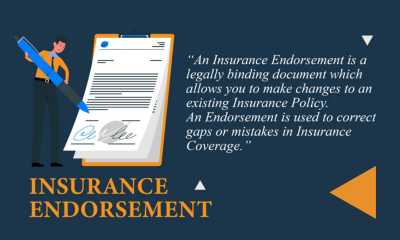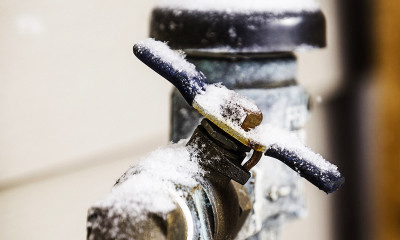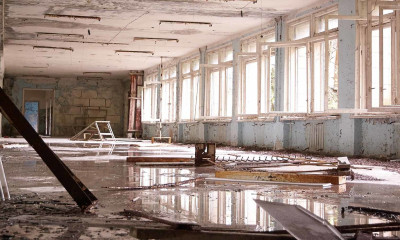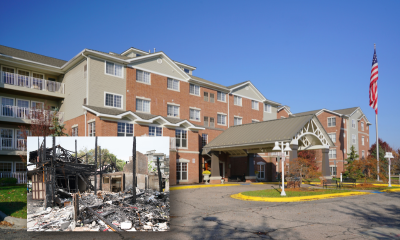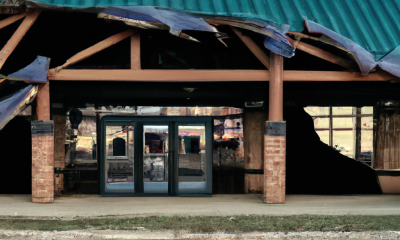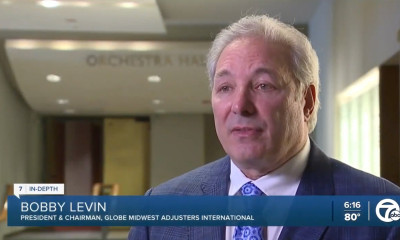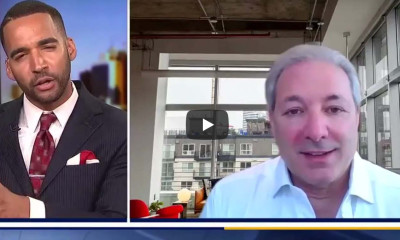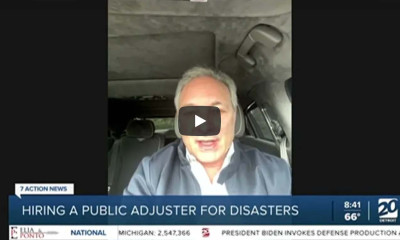Environmental Perils and Pollution Exclusion Clauses: A Crucial Consideration for Nursing Home Owners
In the aftermath of natural disasters, nursing home owners often face the hidden dangers of environmental pollution such as chemical spills and hazardous waste contamination. This is especially relevant in the context of nursing homes, where the well-being of the elderly population is of utmost importance.
Pollution exclusion clauses in their insurance policies gain significance in these scenarios. These clauses define the extent of coverage for environmental hazard-related damages. Understanding these clauses is essential, not only to protect the residents' well-being but also to ensure the financial stability of the nursing home.
Pollution exclusions in insurance policies are commonly classified into three types. The Standard Pollution Exclusion offers limited coverage only for sudden and accidental pollution events. In contrast, the Absolute Pollution Exclusion provides a narrower scope, typically excluding most pollution incidents from coverage. The most restrictive is the Total Pollution Exclusion, which removes coverage for all pollution-related incidents. Each of these exclusion types can be a source of contention and legal disputes due to the significant variability in their interpretations among different scenarios and policies.
Case Study: Maple Grove Senior Care and Pollution Exclusion Complexities
After a severe storm, Maple Grove Senior Care, a nursing home, encountered a significant environmental challenge due to a fuel leak from their backup generator, contaminating the area. Believing the incident was covered under their insurance, they filed a claim for the cleanup costs and business losses.
However, their insurance company disputed the claim, citing the pollution exclusion clause and classifying the leak as traditional environmental pollution, not covered by their policy. Maple Grove Senior Care argued that the leak was sudden and accidental, thus within their coverage scope. This disagreement escalated to legal proceedings to determine if the incident was covered or excluded.
Ultimately, the court sided with Maple Grove Senior Care, ruling the contamination as sudden and accidental, and therefore covered by their insurance. Nevertheless, this victory was costly. The protracted legal battle was financially and emotionally taxing, diverting focus from resident care. The considerable legal expenses and the uncertainty during the case strained the facility's finances and staff morale. This situation underscores the importance for nursing homes to fully comprehend their insurance policies and anticipate potential legal disputes, as these can profoundly affect their operations and resident wellbeing.
The Impact of Pollution Exclusions on Claim Outcomes
Pollution exclusion clauses, while complex, are vital components of nursing home insurance policies. They can significantly influence the outcome of claims following environmental incidents. Owners must be proactive in ensuring their policies offer adequate protection against potential environmental risks. In the wake of a disaster, consulting with insurance experts or public adjusters can be invaluable. These professionals can help navigate the intricacies of policy terms and assist in securing rightful claims, thus protecting the future of the facility.
In summary, the environmental challenges faced by nursing homes emphasize the criticality of fully comprehending pollution exclusion clauses in their insurance contracts. Often underemphasized, these clauses have a substantial effect on the financial implications of environmental events. Nursing home owners must be diligent and informed, actively seeking professional advice to tailor their insurance coverage to their distinct needs and risks.
By adopting this approach, they not only protect their residents but also ensure the ongoing stability and operational continuity of their facilities. This vigilance is a cornerstone in building a resilient and prosperous future, effectively shielding the facility from environmental adversities.
__________________
About the Author
Stuart Dorf, JD, CPAU | Executive Vice President
Stuart Dorf, JD, CPAU, Executive Vice President at Globe Midwest™ Adjusters International, is a licensed public adjuster, appraiser, umpire, and attorney who specializes in securing fair insurance claim settlements for property and business owners. With over 20 years of experience in commercial real estate, law, and marketing, he holds licenses in multiple states, actively participates in legal associations, and has a strong entrepreneurial background. He earned his law degree from the Illinois Institute of Technology’s Chicago-Kent College of Law and graduated with honors from Tulane University.
sdorf@globemwai.com | 248.915.0399
Yossi Gottfried, MSA | Regional Vice President
Yossi Gottfried, MSA, Regional Vice President at Globe Midwest™ Adjusters International, is a forensic accountant specializing in business interruption claims. Yossi leads the firm's nursing home/assisted living facility practice group, advising operators on large insurance claims. His expertise lies in applying insurance policy formulas to accurately assess income loss due to property damage, ensuring clients receive a claim reflective of the true monetary value. He holds a Bachelor of Science in Finance from Yeshiva University and a Master’s in Accounting from Wayne State University.
ygottfried@globemwai.com | 248.885.3902


